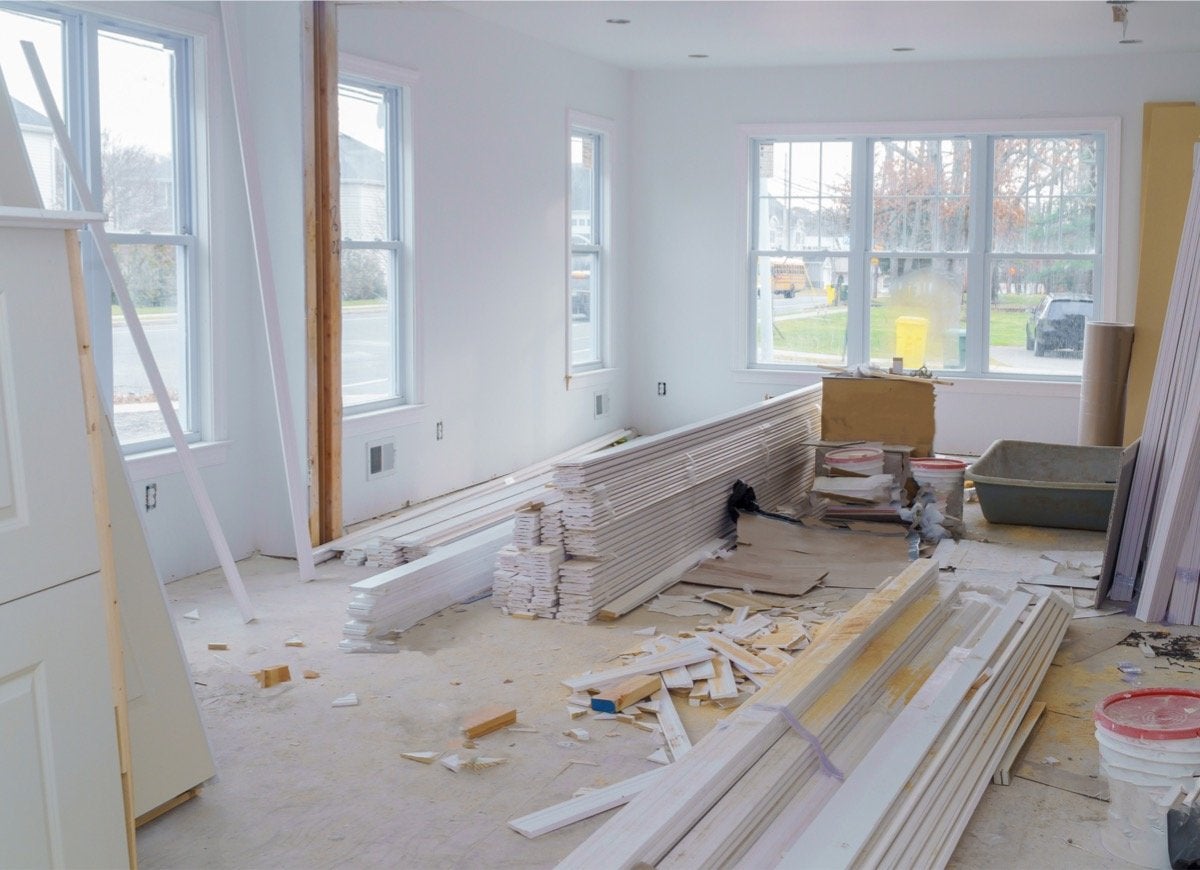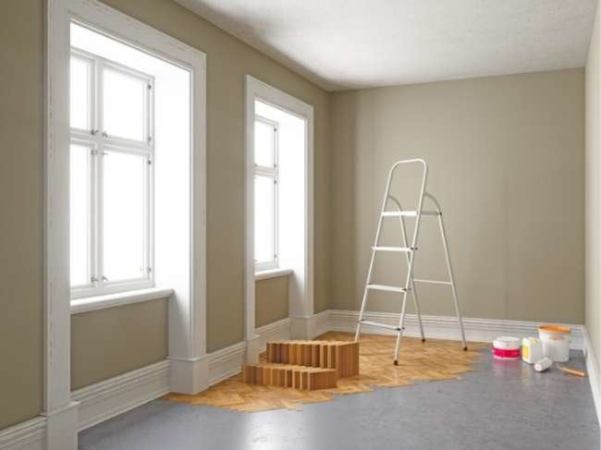We may earn revenue from the products available on this page and participate in affiliate programs. Learn More ›
Educate Yourself to Avoid Unnecessary Spending

Sometimes, it’s difficult to recognize a good deal from a bad one, particularly in the heat of a renovation. Contractors or salespeople may propose upsells, tempting extras or fancier versions of “musts” that weren’t in your initial plan or budget. While these may strike you as good ideas at the time, agreeing to an upsell can be a serious misstep that may be hard to recover from. Even honest tradespeople need to make a buck, and upselling may be key to the success of their business. If you’re getting ready to embark on a renovation, you need to be aware of potential upsells so you can step on the brakes when necessary and keep your project on schedule and within budget.
Shop Around

Our first piece of advice is an obvious one, but it cannot be overemphasized: Shop around for the best deal. It’s OK to ask a number of contractors to provide estimates; it’s part of what they do. These quotes not only give you an idea of what the job might cost you, they also let you get a feel for each contractor’s style and demeanor. Remember, the lowest price is not necessarily the best option. You also need to consider other factors, such as each contractor’s track record and reputation, so asking for references is essential.
Related: 10 Things Your Contractor May Not Be Telling You
Get Advice

Hiring friends or family to work on your renovation can be a recipe for disaster, but if you have people close to you who are knowledgeable and experienced, ask for their advice. They can be good sources of trustworthy contractors, and they may be able to point out a bad deal before you sign on the dotted line.
Know What You Want

Having a clear idea of what you want can be difficult if you’re not particularly knowledgeable about home improvement, but this may be the single most important tip we can give you. If you seem unsure of what you want, a salesperson or contractor might see you as a blank check. Realize that the construction business often has very tight profit margins, so if you’re wishy-washy about your project, you’re leaving room for the contractor to take the wheel and steer it in a more expensive direction.
Related: 8 Ways You Can Help Your Contractor Hit the Project Deadline
Break Your Budget Down by Phase

Depending on the size of your project, you could be dealing with a number of tradespeople during each phase, and every one of them has the potential to upsell you. To make sure you have enough money to complete your renovation, it’s crucial that you have a budget for each phase of the project. If, for instance, the electrician suggests installing a few more lights and it makes sense to you, you can consult your budget to see if this additional expense will work out in the grand scheme of things. If, down the line, the plumber runs into an issue that will result in higher costs, you’ll be glad you stuck close to the budget on the earlier phases of the job.
Need vs. Want

With any renovation, you have to recognize the difference between what you need and what you want. During the project, contractors may upsell you, suggesting more expensive materials, an innovative feature, or a more complicated technique. You have to decide whether that upgrade constitutes a need or a want. Choose your splurges carefully: A few well-selected upgrades can really enhance your project, but it will be hard to appreciate all those special touches if you’re broke at the end of the renovation, or if you run out of money midstream.
Don’t Pay for Services That You Don’t Need

If you’re OK with doing some of the grunt work yourself, you can avoid paying for things you don’t need. For instance, if you’re paying a contractor by the hour, consider taking waste to the dump yourself instead of paying the contractor to do it. Similarly, if you’re capable of grabbing materials from the hardware store, not only can you save on your contractor’s hourly rate, but you’ll also know exactly how much you’re paying for those supplies.
Understand Material Grades

Within the realm of each type of material (wood, drywall, granite, etc.), there are material grades with varying costs. These differences can be particularly pronounced with high-end materials like countertops, cabinets, and flooring. While there will usually be a noticeable difference between low-end materials and top-tier grades, the difference between low-end and mid-grade, or mid-grade and high-end, may not be as drastic. Don’t pay for a grade that you aren’t getting, and don’t agree to pay for high-end materials when you’re fine with mid-grade.
Timing May Be Everything

During their busy season (usually the warmer months), a contractor may quote higher prices for jobs. The reason is, with so many other jobs available, taking your job has to be worth it for them. This may not fit the definition of upselling, but be aware that you will pay more for a renovation during the busy season.
There’s Always Room for Negotiation

When a contractor sends you a quote, chances are you’re already being upsold a bit. Leaving a little room for negotiation is good for everyone involved. In a successful negotiation, both parties walk away from the table happy: You save money, and they get the job. Also, negotiating shows contractors that you’re savvy and know what you want, so they’ll be less likely to take advantage of you.
Get It in Writing

Whatever the scope of work may be, you need it spelled out in a detailed contract. Nailing down whatever you can in a comprehensive contract can prevent a contractor from gouging you on hours and driving up materials costs. Honest contractors will discuss issues with you and find agreeable solutions within the scope of your contract. Dishonest contractors may drag their feet to accumulate hours or adjust materials pricing to obtain more money. Having a clear and easily understood contract will help you to avoid these problems throughout the course of the renovation.

















